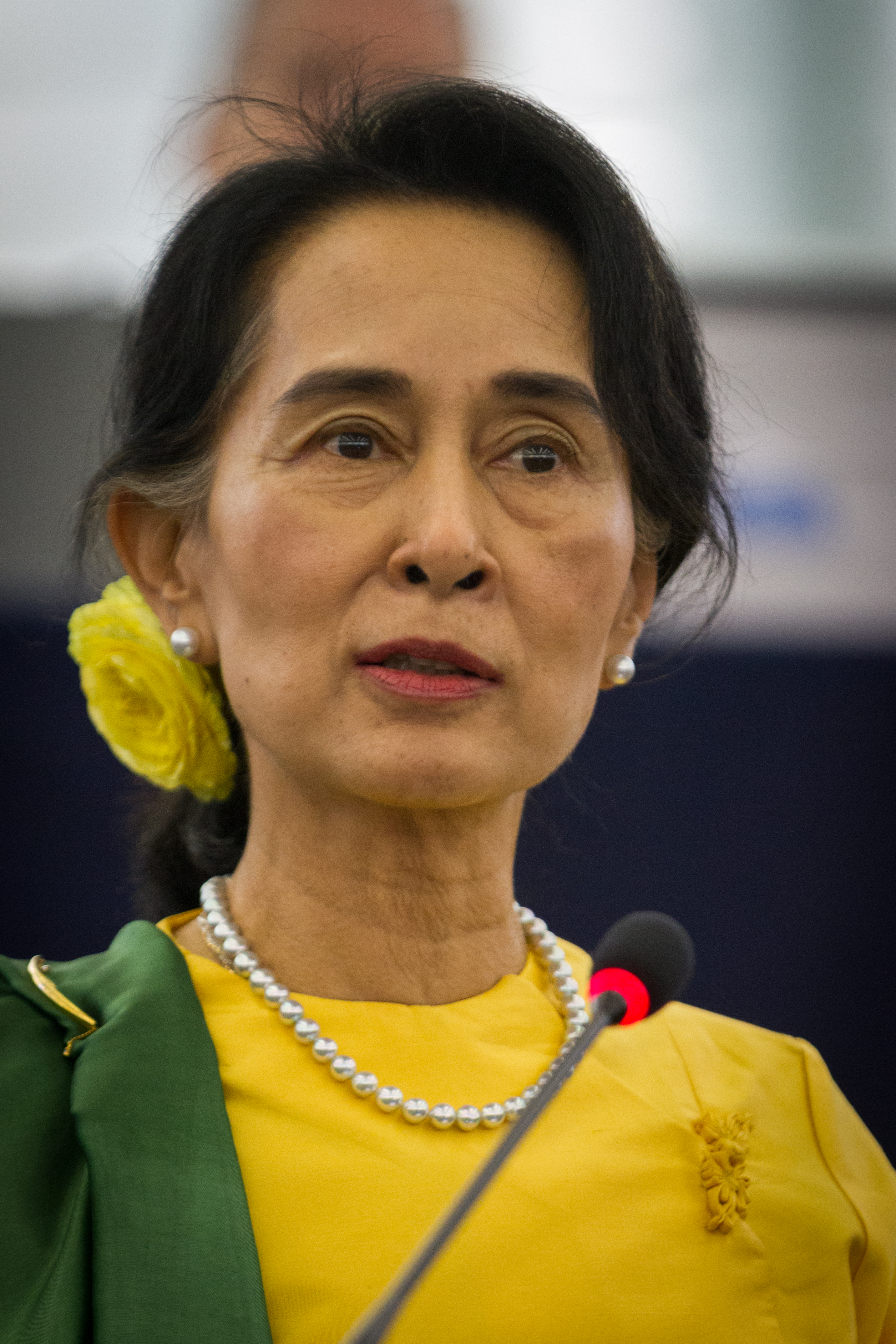When heroes tumble
If you were at all aware of world politics from the 1980s on, you knew who Aung San Suu Kyi was.
Daughter of Burma's founding father, Aung San, she stood against the military junta which ruled the country and changed its name to Myanmar. She was placed under house arrest by the junta for decades, after her party swept elections which were then abnegated by the military authorities. When the junta finally gave way—slightly—her party again swept to power, and although she herself couldn't stand in the election, she was Burma's de facto leader.
If you are at all aware of world events from the middle of this decade on, you'll also know that there is a genocide occurring in Burma now. The military, which even after the restoration of "democracy" does what it wants, is waging a campaign against the Rohingya Muslim minority in Rakhine state. As is common, they call the Rohingya "terrorists". They also say that, even though they've lived in Burma for centuries, they aren't Burmese, but aliens seeking to upend the state. Seven hundred thousand Rohingya have fled to neighboring Bangladesh. They have been arrested, murdered, and raped. Their villages have been burned. They have no one to defend them.
A coalition of governments have brought a case against Burma at the International Court of Justice. Arguments run through Thursday. They are seeking a ruling ordering Burma to cease its actions against the Rohingya, and to preserve any and all documents for future war crimes trials.
Now, one would think that Aung San Suu Kyi, peace campaigner, Nobel Prize winner, would be working against the military which kept her caged for decades.
Instead:
Yes. The hero lauded across all continents as a freedom fighter is defending her military.A day after Daw Aung San Suu Kyi listened at the world’s highest court in The Hague to testimony of the horrors inflicted upon the Rohingya Muslims of Myanmar — veils ripped off girls before their rapes, babies thrown to their deaths, hundreds of villages turned into kindling — the Nobel Peace Prize laureate on Wednesday defended her homeland from accusations of genocide at the International Court of Justice.“Genocidal intent cannot be the only hypothesis,” she said in day two of public hearings, adding that her country’s own judicial system was investigating any possible crimes and would be reaching its own conclusions.Presenting what many human rights experts have called some of the worst ethnic pogroms of this century as the result of “cycles of intercommunal violence going back to the 1940s,” Ms. Aung San Suu Kyi chided outsiders for not having an adequate understanding of Myanmar’s complex ethnic and social makeup.While saying that it could “not be ruled out” that the Myanmar military may have used “disproportionate force,” Ms. Aung San Suu Kyi criticized “impatient international actors” and said that “it would not be helpful for the international legal order if the impression takes hold that only resource-rich countries can conduct adequate domestic investigations and prosecutions.”
The pecuniary reason is that elections are due next year, and the Burmese Buddhist majority supports the state's actions against the pernicious Rohingya. They see them as foreigners seeking to split up the Union. The military's actions are popular, and Aung San Suu Kyi's party stands to gain seats by aligning itself with the military.
But we have to accept, also, that most heroes have feet of clay.
Her father was Burma's founder, and the founder of its military. Even though that military kept her imprisoned for decades, now that she's where her father was, she will defend it and her nation. She is of the opinion "my nation, right or wrong." Which is a fine sentiment for a chauvinist, or a politician, but shows a lack of depth in someone who won the Nobel Peace Prize. One has to wonder if justice was never her aim, but power. Now that she has it, and is on the brink of attaining more of it, any rhetorical allegiance she had to broader concepts of justice have gone out the window.
Is she so blinded by her pursuit of power that she literally cannot see the Rohingya's humanity? One can only make that assumption. The Rohingya are inconveniences to be dealt with the way that the Burmese military has always dealt with problems: with extreme violence. The military which turned its guns on her supporters in 1988 now turns them on a defenseless people, and she not only acquiesces, but wholeheartedly supports it. We can't but wonder if she was always so coldhearted and ruthless.
As she defends her brutal military at The Hague, just remember this: Beware of heroes. Almost all of them will disappoint you eventually.
